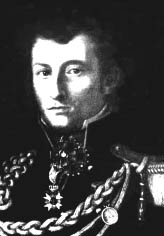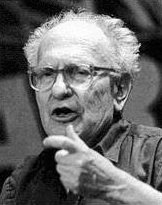Cl
Clark, Thomas (-1857)
English Chartist, founder of National Charter League.

Clausewitz, General Carl von (1780-1831)
Clausewitz’ father was an officer in the Prussian Army, and Carl entered the military at the age of 12, eventually attaining the rank of Major General. He served in the Rhine campaigns (1793-94) and in the Napoleonic Wars. In 1810 he married Countess Marie von Brühl. In the service of the Russian Empire from 1812 until 1814, Clausewitz helped negotiate the Convention of Tauroggen, which prepared the way for the coalition of Prussia, Russia, and Britain against Napoleon. He later re-entered the Prussian army, played an important role at Waterloo, and was appointed director of the Prussian war college in 1818. Clausewitz died in a cholera outbreak in 1831.
See Clausewitz Archive.
Clemenceau, Georges (1841-1929)
Leading French bourgeois politician. He emerged as a radical during the period of the Paris Commune (1871). In the 1890s he became popular through his part in the case of Dreyfus whom he defended along with Zola and Jaures. From 1902 he was a member of the government, and Prime Minister for a large part of this period. In this office from 1917 to 1920 he was hailed as the ‘architect of victory’ and was the leading figure of the Versailles peace conference in 1919 (and helped write the Versailles treaty). At the same period, he was the inspirer of intervention against the R.S.F.S.R..

Cliff, Tony (1917-2000)
Born in Palestine to Zionist parents in 1917, Ygael Gluckstein became a Trotskyist during the 1930s and played a leading role in the attempt to forge a movement uniting Arab and Jewish workers. At the end of of the Second World war, seeing that the victory of the Zionists was more and more inevitable, he moved to Britain and adopted the pseudonym Tony Cliff.
In the late 1940s he developed the theory that Russia wasn’t a workers’ state but a form of bureaucratic state capitalism, which has characterised the tendency with which he was associated for the remaining five decades of his life. Although he broke from “orthodox Trotskyism” after being bureaucratically excluded from the Fourth International in 1950, he always considered himself to be a Trotskyist although he was also open to other influences within the Marxist tradition.
His legacy is embodied in the British Socialist Workers Party and its sister organisations in the International Socialist Tendency.
See Tony Cliff Archive.
Clynes, John (1869-1849)
Right-wing Labour leader who began his working life as a piecer in a cotton mill in Oldham. In 1891 became an organizer for the Gasworkers Union; secretary of the Lancashire district 1896-1914 and thereafter President until 1937 of what ultimately became the General and Municipal Workers' Union. Secretary of the Oldham Trades Council 1894-1912. Entered Parliament in 1906, joining the wartime coalition government as a junior minister in 1917 and as Food Controller 1918-19. Passed over as Labour Party leader in 1922 when MacDonald was elected; Lord Privy Seal in 1924 Cabinet, Home Secretary in 1929. He always stood on the right wing of the Labour Party, but did not join MacDonald's coalition with the Tories in 1931. Lost his seat in Parliament but regained it 1935-1945.